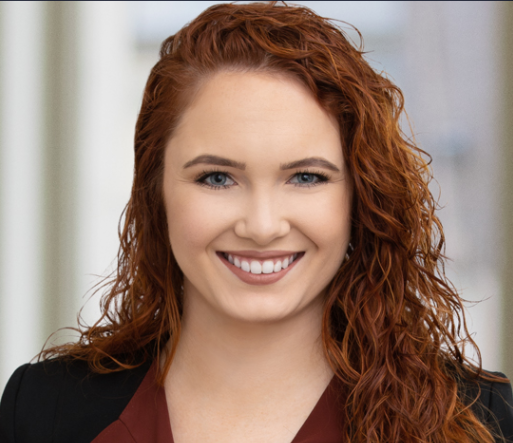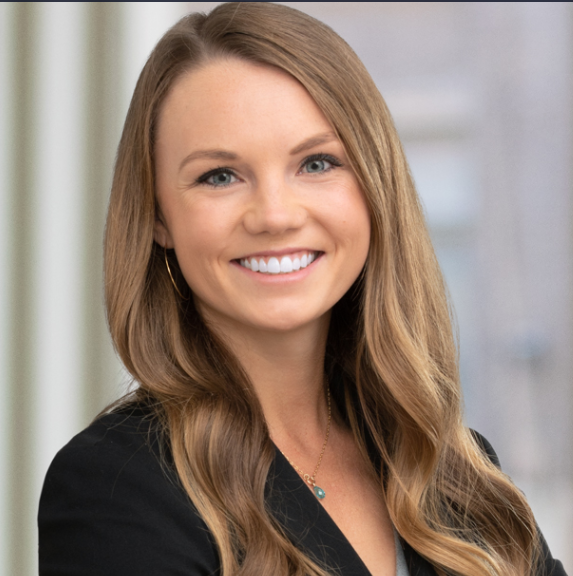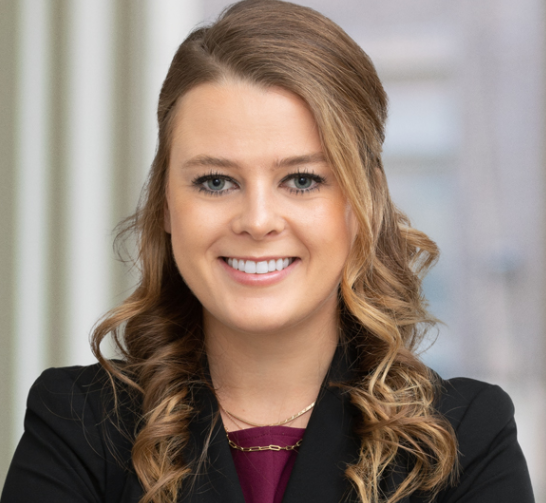The Good, the Bad, the Ugly
Beginning any career certainly comes with its share of anxieties. Will you be successful? Will you get along with your coworkers? Will you like your new job? Will your first day be the first day of the rest of your career? Consider now onboarding to a new position during a global pandemic. Office buildings are closed; your first meetings with your new coworkers are entirely virtual. There are no “getting to know you” lunches or happy hours. Face time with your coworkers occurs via a small computer monitor and webcam while you work in your home office—if you’re lucky to have a private place to work from home—or not at all. You’re assigned tasks via Skype for Business, Microsoft Teams, Zoom, and calls and texts directly to your cell phone, rather than formal meetings in your boss’s office or cubicle.
For many established employees, COVID-19 caused turmoil and created a new normal to adjust to. But how can you adjust as a brand new employee? To address some of the highs and lows of onboarding during a pandemic, I reached out to some recent colleagues of mine – Colleen Naumovich, Daniel Thompson, and Kathleen Waak – to discuss their experiences as new associate attorneys at Barnes & Thornburg LLP during the COVID-19 pandemic. As attorneys, face time is particularly important: with clients, with the court, and with one another. Each of them were lucky enough to have a sense of the law firm way of life from prior internships over their summers during law school, but all began their first year position during the high of the COVID-19 pandemic, and were faced with the unique struggle of trying to begin a new—and generally collaborative—career at a time rife with uncertainty.
- Describe your experience starting a new career amidst the COVID-19 pandemic.
CN: I was a little anxious starting in such strange circumstances, but was also very grateful to still have a job. The hardest part for me has been the lack of in-person contact with many of my colleagues, either to ask someone a quick question or just having a conversation. Learning other people’s work style and preferences is a little more challenging when you can’t communicate in person. I have been coming into the office most days, and I have found it has been easier to work with and communicate with people who are also in the office.
DT: Oh boy. Where to start? I think my experience falls into the “blessing but a curse” category. For example, making connections in a pre-pandemic world was as simple as walking down the hall, knocking on doors, and striking up conversations. Certainly, I miss those opportunities. I have learned, however, that the new “knocking on doors” is a Skype coffee invitation. While there is a universal strangeness associated with talking to someone on a screen, Skype coffee can make connecting with folks easier. Asking for a fifteen-minute conversation from the comfort of your own home is much easier than asking for a thirty-minute or one-hour lunch. And so far, at least in my experience, folks are more responsive to it.
KW: Once I officially started working, it has not been bad at all. In the months leading up to starting, it was not very fun if I am being honest. Finishing law school via Zoom was a huge let down. Following graduation, there was just a lot of uncertainty which is never comfortable. Some of my classmates were losing their job offers, everyone was having their start days pushed back and we did not even know if we were going to be able to take the bar exam. Barnes & Thornburg was always great at balancing being practical and honest but also reassuring. Once I actually was able to start, everything was great. For the 2020 associates, we have the advantage of having experience at the firm from at least May 2019 and onward. From being around people at the firm in the summer of 2019 and as a clerk during the 2019-2020 academic year, I was able to cultivate enough relationships to not make the transition to virtual too awkward. I think like everyone else did back in March/April, you just adjust to being virtual.
- How do you think your transition into your position as an associate at Barnes & Thornburg differed from “normal” onboarding in previous years?
CN: Our orientation was still in person in a large, spaced out conference room, but all of the presenters were virtual over Zoom. I think that made it harder to follow some of the presentations and ask questions versus having the presenter in the same room. I think in a normal year, I would have spent my first week or so asking partners and colleagues to lunch to learn about their work and get up to speed on information in the firm, but that was less of an option this year as most people are working from home still.
DT: Honestly? It was a bit tough. I have gone through the onboarding experience three times at Barnes & Thornburg. Once as a summer associate, once as a law clerk, and once as a first-year associate. The first two were pre-pandemic, so we had in-person contact and communication with our trainers. I don’t need to explain why that’s easier—I feel like everyone who has lived through 2020 understands. With that said, I still learned all the information I needed to hit the ground running. Even if I didn’t catch something, the trainers provided us with enough online materials that we could learn it ourselves.
KW: The thing that immediately stands out is maintaining and developing relationships. As much as people are willing to do virtual lunches/coffees, I feel like no one really, really wants to do that so it makes it hard to organically develop your working relationships with partners. It feels kind of odd to reach out for work to someone you have never even met in person.
Related, you lose that sense of camaraderie with your fellow associates and some of those new associate experiences you share together.
Again, most of us have the benefit of being here for awhile and already having developed relationships, but obviously as a full-time associate it is a little different.
- What was the best thing about having to onboard during the pandemic?
CN: Barnes & Thornburg did a great job trying to make onboarding as normal as possible, while still being safe and making everyone comfortable. In addition to orientation, we also had a new associate retreat via Zoom, so it was nice to still connect with all the new associates in some way. We also have the option to work from home or in the office, so having that flexibility has been nice.
DT: Learning more about technology and new ways to connect with others. Before the pandemic, so much work could be done without the assistance of technology. Now, our work fully depends on the technology we use. And while much of that technology existed before the pandemic, fewer people used it so it wasn’t always practical.
KW: When anyone ever apologizes to me about the circumstances I remind them that overall my 2020 circumstances are not too bad. I am just beyond thrilled that 1. I have a job, and 2. It did not get pushed back. Aside from that, like anyone else the best part about onboarding during the pandemic is getting to wear comfy clothes and drink good coffee while I am working from home.
- What was the worst thing about having to onboard during the pandemic?
CN: The worst part has been not being able to see co-workers on a day-to-day basis and not having any sort of in-person work events to meet more people and learn more about the firm culture.
DT: Not seeing other folks—which, if you haven’t noticed, is really my main theme about the pandemic. I like people. I like interacting with them, and I learn better in a room full of people than in my apartment alone.
KW: The worst part has just been missing out on the typical experiences of a new associate—both professional and not.
- Did your new coworkers do anything to try to get to know you via remote means? (I.e., welcome “happy hours” or other virtual gatherings designed for meeting or introducing yourselves to coworkers)
CN: I’ve had many virtual meet and greets with coworkers as well as a few department meetings where I’ve introduced myself.
DT: Okay, I feel like we all know how difficult virtual “happy hours” can be. At the same time, in-person happy hours just aren’t possible right now. So yes, we tried the Zoom introductions. I just would have preferred the real deal.
KW: I have had a few “networking” virtual coffees and in-person lunches with people comfortable with it but not really with anyone I did not already know from before. Meeting people for the first time virtually is definitely tough.
- Do you have any advice for other young professionals starting a new job or position at a new company during the COVID-19 pandemic? Is there anything that you personally would do differently to make your transition easier?
CN: Reach out to as many people as you can early on and find someone who you can go to with questions. I’ve found in a virtual world, it is a little harder to know who to turn to with basic, administrative-type questions when I can’t just knock of a co-worker’s door and ask a quick question in person. Finding a go-to person for these types of questions and concerns has been very helpful for me as I navigate a lot of new things.
DT: Make as many connections as you can through any means possible. Once you make a connection, discover and then respect their communication preferences. Also, it’s too tempting to turn off your camera during large Zoom calls (I’m very guilty of this), but if you are able, keep it on. You want people to remember your face just as much as you want them to remember your name.
KW: It was extremely important to me to be able to start work and already have a list of people I knew well enough to comfortably reach out to for work. For summer associates who were virtual and will be making the jump to full-time associates or for people who have not yet met with or worked with anyone before starting, I would start developing those relationships early. Networking lunches and coffee—even if they are virtual and uncomfortable—lead to work. They also help you to decide who you get along with and would want to work with before jumping in on a project (and vice versa). I do not think you can ever have too many coffees and lunches so I would have focused on that more in my first few months if I could go back.
- Do you have any advice for employers seeking to onboard during the COVID-19 pandemic?
CN: Assign new employees a mentor or someone that they can go to for questions starting out. Having at least one solid connection to go to when you don’t know who else to ask is a great benefit to a new employee who is still trying to navigate everything. Having scheduled check-ins with new employees also helps to make sure everything is running smoothly for them and answer any questions they may have,
DT: Have as many support systems in play as possible. Informal mentorship is just as important as formal mentorship. No one knows the ropes on day one, and a few days of training is not going to change that. There will be large, substantive questions about how an important task should be done, but there will also be small, mundane questions about how to organize a document. Make sure your new hires have the ability to ask both.
KW: Remind people that the new hires have started and set up a monthly meeting to make sure they are doing well. It can be difficult to feel comfortable asking questions, especially when you are remote, about a new job so give the new hires the chance and platform to ask questions.
Author 1 Kelsey Dilday, Associate Attorney

Kelsey is a third year associate attorney in Barnes & Thornburg LLP’s Litigation Department, with a focus on insurance coverage and other commercial disputes. Kelsey is a member of IndyHub’s Corporate Collective and has been a mentor for Starfish Initiative in the Indianapolis area. Though not originally an Indianapolis native, she is proud to call Indianapolis home. Her favorite thing to do in Indianapolis is explore the neighborhoods of Fletcher Place and Fountain Square to eat some great food and take in live music.
Author 2 Colleen Naumovich, Associate Attorney

Colleen is a first year associate at Barnes & Thornburg LLP in the Labor and Employment Department. Colleen attended Saint Mary’s College for undergrad and Indiana University Maurer School of Law for law school. She has lived in the Indianapolis area most of her life and enjoys experiencing everything the city has to offer, especially outdoor concerts in the summer and trying new restaurants. As an avid sports fan, Colleen also appreciates Indianapolis’ unique connection to the sports world through hosting many major sporting events over the years and being the home to several professional sports teams.
Author 3 Daniel Thompson, Associate Attorney

Daniel Thompson is a first year associate attorney in Barnes & Thornburg LLP’s Litigation Department. His practice is focused on commercial disputes and products liability. Daniel has been a Hoosier his whole life. Originally from Jeffersonville, Indiana, he attended Wabash College and later Indiana University Maurer School of Law. While in law school, Daniel began flight lessons to become a pilot. He also crafted a few pieces of furniture using Indiana-sourced wood in Bloomington. He loves exploring niche groceries and butcher shops in Indianapolis to help him experiment in the kitchen.
Author 4: Kat Waak, Associate Attorney

Kat is a first year associate attorney in Barnes & Thornburg LLP’s Environmental Department. From grade school to grad school, she has spent her entire academic career in Indiana and has now settled in to a home in Noblesville with her husband and dog. With a background anchored in environmental sciences, she enjoys spending her free time outside, whether that’s a stroll through the neighborhood or a trip to a National Park.
Social media handles for Barnes & Thornburg:
Twitter: @BTLawNews
LinkedIn: https://www.linkedin.com/company/barnes-&-thornburg-llp





